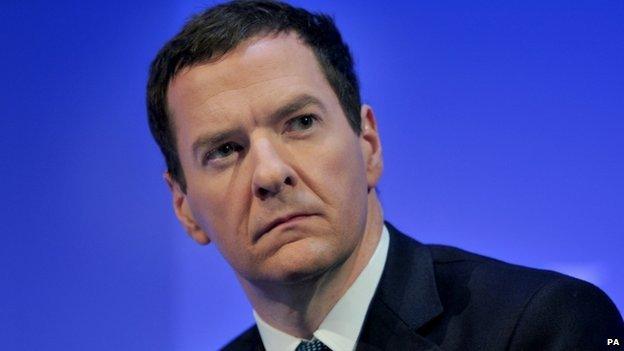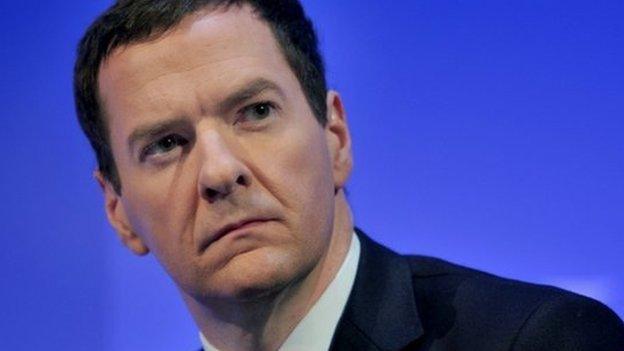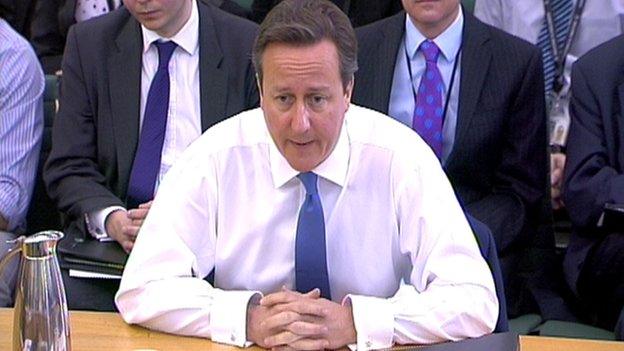Corporation tax: Carrot or stick?
- Published
- comments

The chancellor made the announcement in the House of Commons as part of his Autumn Statement
Anyone who thought the devolution of corporation tax was mainly a business issue, rather than an intensely political one, can think again.
By linking any move on corporation tax to achieving progress in the inter-party talks, George Osborne has given his cabinet colleague Theresa Villiers something Richard Haass never had when he was talks chair.
In a word, that's leverage. Instead of appealing to the politicians' consciences, Ms Villiers has a rather large carrot to dangle in front of their noses.
Or if they fail to do a deal, the carrot may magically transform into a stick as some parties blame others for passing up on the potential chance of creating 50,000 jobs.
The Osborne test for the local politicians is to show they are "able to manage the financial implications" of devolving corporation tax.
A subsequent question and answer session between Sammy Wilson and the chancellor, external leaves little doubt that this is code for agreement on welfare reform and balancing next year's budget.
So the parties could do a deal on cutting the number of departments or creating new bodies to deal with the past without reaching the threshold set by the chancellor.
If the politicians do meet the Osborne test, the Westminster government says it will "introduce" legislation before next May's general election.
But with time so tight, introducing a bill does not necessarily mean it will pass into law.
On the face of it, the chancellor's words appear to fall short of the pact agreed by the Northern Ireland Executive and the Westminster government in June 2013 that committed to a "final decision" on corporation tax in the 2014 Autumn Statement and, in the event of a positive decision, a standalone bill "with the aim of it becoming law before the prorogation of Parliament prior to the 2015 General Election".
George Osborne's conditional approach does not seem "unreasonable" so far as First Minister and DUP leader Peter Robinson is concerned.
His statement has also been welcomed by the Ulster Unionists and Alliance.
But the SDLP has objected to being "strong-armed" by the Treasury and Sinn Féin has accused Mr Osborne of demonstrating "breathtaking arrogance".
Sinn Féin says it won't implement Tory welfare policies just to get the power over corporation tax.
If nationalists stick to that line it looks like there won't be a comprehensive deal in the Stormont talks, and the politicians won't get to take a bite out of the chancellor's carrot.
- Published3 December 2014

- Published8 January 2015

- Published20 November 2014
